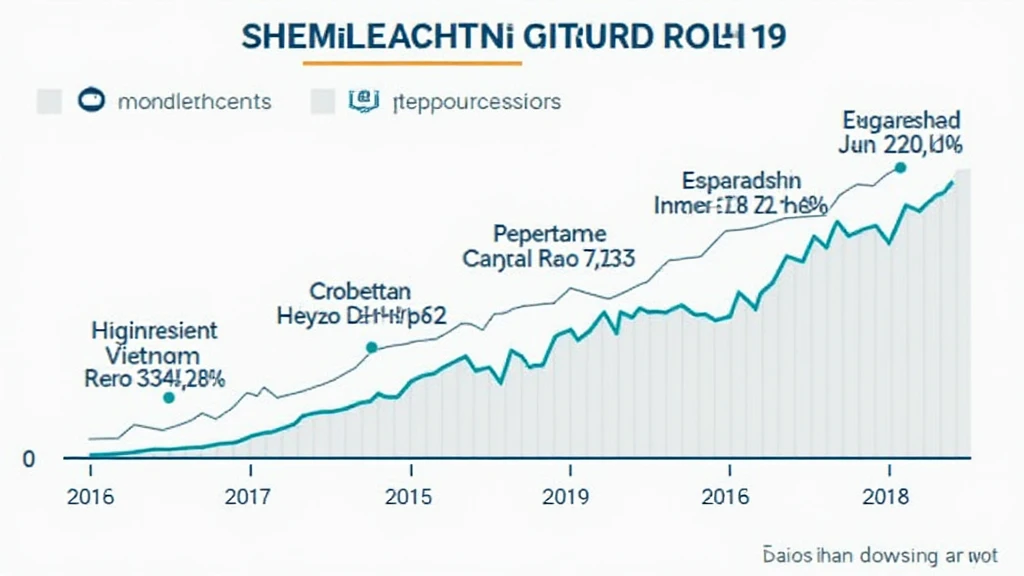Introduction
In recent years, the cryptocurrency market has exploded in growth and popularity around the world. According to a report by Statista, the total market capitalization of cryptocurrencies surpassed $2 trillion in 2021. This surge has led not just to increased interest among investors but also scrutiny by governments worldwide, including Vietnam. With approximately 4 million users engaging with cryptocurrencies in Vietnam as of 2023, understanding the intricacies of crypto capital gains becomes paramount.
But with an ever-evolving regulatory landscape and unique financial implications, how do we navigate this complex terrain? In this article, we aim to break down the vital aspects of capital gains in Vietnam’s crypto market, drawing on both local context and broader principles.
1. Understanding Capital Gains
Before diving into specifics regarding Vietnam, let’s define what capital gains are in the context of cryptocurrencies. In essence, a capital gain occurs when the value of your asset increases relative to its purchase price. In Vietnam, like in many jurisdictions, these gains are taxable.

- Short-Term Gains: Gains from assets held for less than a year.
- Long-Term Gains: Gains from assets held for more than a year.
As Vietnamese crypto enthusiasts navigate the market, they will encounter capital gains, which can significantly affect their taxes. Understanding how these work is crucial for compliance.
2. The Tax Landscape in Vietnam
With the rapid growth of the crypto market in Vietnam, one question arises: What does the tax landscape look like for cryptocurrencies? In 2022, the Vietnamese government made strides in formalizing regulations regarding crypto transactions. According to the Ministry of Finance, clear guidance on crypto taxation is expected in the near future. Here’s a breakdown of how capital gains are currently treated:
- Cryptocurrency trading is classified under personal income tax (PIT).
- Short-term capital gains may be taxed at rates of up to 20%.
- Long-term capital gains are currently undefined but will likely fall under new regulations.
Understanding this landscape is vital for any investor looking to maximize their gains while staying compliant with Vietnamese law.
3. How to Calculate Capital Gains for Crypto
Calculating capital gains may seem daunting, but it’s a straightforward process when broken down:
- Determine your buying price (the cost basis).
- Identify the selling price.
- Subtract the cost basis from the selling price to find your capital gain.
For example, if you bought Bitcoin (BTC) at $10,000 and sold it for $15,000, your capital gain would be:
Capital Gain = Selling Price – Cost Basis = $15,000 – $10,000 = $5,000
This process follow the same formula whether you’re trading Bitcoin, Ethereum, or any other cryptocurrency.
4. Potential Challenges in Reporting
When engaging in crypto trading, investors may face hurdles in reporting their capital gains accurately. Uncertainties such as market volatility, changing regulations, and tracking transactions can complicate matters. Here are a few key challenges:
- Volatility: The rapid price changes in cryptocurrencies can make determining the gain or loss challenging.
- Record Keeping: It’s essential to maintain detailed records for each transaction.
- Regulatory Changes: As regulations in Vietnam are still in flux, investors should stay updated to avoid penalties.
Utilizing efficient tools for tracking trading history can alleviate some of these burdens.
5. Future Regulations: What to Expect
As Vietnam continues to refine its approach to cryptocurrencies, investors should anticipate further regulations. The government has indicated a willingness to provide clearer guidelines regarding crypto taxation. Here’s what we might expect:
- Formalized Tax Structures – Easy categorization between long-term and short-term gains.
- International Collaborations – Vietnam may align closer with global tax standards.
- Technology-Driven Solutions – Use of blockchain technology for transparency in reporting.
Proactive engagement with these anticipated changes can empower investors to adjust their strategies and remain compliant.
Conclusion
Understanding crypto capital gains is essential for any investor in Vietnam’s burgeoning crypto market. With millions of users engaging with this volatile asset class, navigating the tax implications is critical. By staying informed on regulations and adopting best practices for reporting gains, Vietnamese investors can protect themselves and potentially optimize their returns.
By monitoring the ongoing developments in crypto legislation, you can position yourself for success in 2025 and beyond. For more information on cryptocurrency in the Vietnamese market, visit HIBT for up-to-date guides and data.
For expert insights into blockchain and cryptocurrency tax implications, consulting with a professional is advisable.
Author: Dr. Nguyen Van An
Dr. An is a renowned expert in blockchain technology, with over 15 publications in leading blockchain journals and has led several high-profile audits of cryptocurrency platforms.





